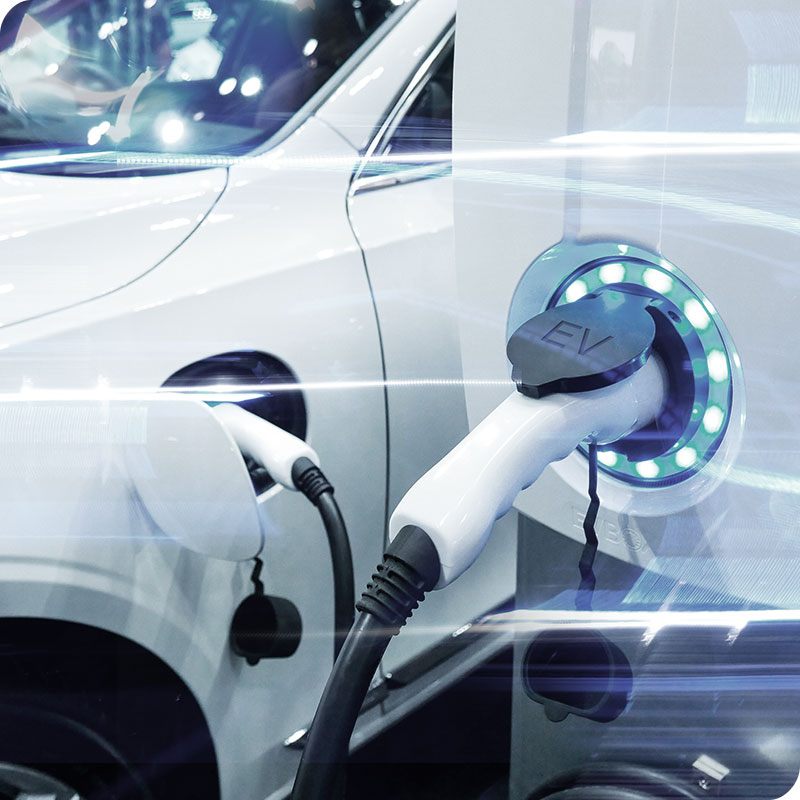Intelligent transport, the challenge of the automotive industry.
DAVID AGUILAR JUÁREZ.
The automobile has transformed the cities, and with it the way to live them, develop them and expand them. Currently, at least in Mexico, large cities are the place where more new cars are sold year after year.
However, as the urbanization and the population increase, the road traffic, the emission of millions of tons of gases emitted by the engines in motion and the millions of man-hours that are invested to move from one place to another, are part of a routine that is normalized even in movies.
Until three centuries ago, cities developed according to the course of rivers; today the growth follows the line of state highways and roads, so that year after year, dozens of cities in the country are closer to each other.
It is enough to compare a map of 50 years ago with a current one to see how the urban sprawl of Mexico City and its metropolitan area grew. The ivy grew following the 'wires', those meandering roads that first were housed by those who could not live within in the city and who decade after decade were finally absorbed. Now they are part of one of the largest cities on the planet.
Millions of trips and other activities are monitored by surveillance cameras; the authorities or the civil society respond to reports made from social networks and millions of people check the traffic through applications.
The apps also allow you go to the supermarket, ask for a taxi, see prices and schedules of public transport or tourist services, but that, in itself, does not make the metropolis receive a label of 'smart cities'.
Much less intelligent is the current way in which we move and daily it consumes hundreds of millions of liters of fuel, not to mention the hours that are lost by millions of people in traffic during the transfers to work or study centers .
"Intelligent mobility will be one that offers solutions to the real problems of people's transfer, especially in densely populated areas. This is not only achieved via technological elements, such as a car or an electric skate, but it can include redesigning the streets to allow different modes of transport to coexist and improve the quality of life.
Certainly, the technology will be necessary for the coordination of all these services and infrastructure,” is defined from the offices of Ford Mexico.
Connectivity, the key
Just as the use of electric vehicles in a massive way will modify the cities around the infrastructure to supply the electricity that will be demanded, the connectivity to the Internet will be a key factor in the development of the cities with an intelligent mobility.
Currently, one of the priorities of the automotive industry is to advance in connectivity issues between the units, as well as with power stations where the mobility information generated in each trip can be compiled. Some of the most viewed videos in the first months of 2019 on YouTube are those related to the first tests of autonomy made by various brands, including Tesla and General Motors, as well as the vehicle developed by Google.
"Smart mobility is more related to the connectivity and autonomy than electrification, this allows us to have more ecological cars, but the real intelligence consists in how a car knows its user, its environment and in that it moves without a driver. We are still in the process to achieve it 100%, but without a doubt we already see the first steps of these developments, "explains José Álvarez, spokesperson for Mercedes Benz-Daimler in Mexico.
The goal
Smart mobility "is based on innovative and sustainable ways of providing a means of transport for the inhabitants of the cities. One of the examples is the development of public transport systems and vehicles based on fuels and propulsion systems that respect the environment, supported by technological advances proactive behavior of citizens ", according to one of the technical readings consulted for this reportage.
One of the generalized perceptions about smart cities, hand in hand with the mobility, is that the pollution will be eliminated, thanks to the fact that millions of human beings will be using as a transport electric motorisations (which already happens in public transport in several cities in Europe and Asia).
"But electrifying cars doesn’t mean less pollution. Yes, it decreases in the cities, but not in the country, " said Albrecht Ysenburg, a leading automotive industry partner of KPMG Mexico.
Mexico generates almost 80% of its electricity based on the burning of fossil fuels and it does not benefits from its generation capacity by the hydrological route. Thus, each battery is charged thanks to the burning of millions of liters of natural gas, coal and even fuel oil. Another approach is the autonomy in the vehicles driving and the safety.
The seductive idea that is used so far by a big part of the marketing, is that the number of accidents will be reduced and, therefore, the number of the fatalities in them too. Insurers in Mexico point out in their statistics that 8 out of 10 accidents are caused by a human error, but if people stop driving in the future, then those accidents will not happen and fewer people will die.
How will this impact the cities that aspire to be sustainable? Without a doubt, it is a topic for another report. A third line of work to achieve intelligent mobility, in which the automotive industry investsfor its research and development resources that are worth millions, is the application of the technologies dedicated to connectivity between cars.
The most recent mobility study by the Institute for Transportation and Development Policies (ITDP) points out that Information and Communication Technologies (ICT) contribute to the efficiency of the companies and reduce their operating costs, both those associated with the fuel consumption and with the management of human resources.
"For the authorities, the results of the project demonstrate how the ICT can be a tool to achieve public policy objectives related to the road safety, climate change and air quality, as well as for the planning and management of public transport," the study adds.
The report adds that "the benefits for the users are related to the efficiency in the operation of the routes, which can reduce transfer times, increase regularity and reduce waiting times by offering information in real time."
What will be needed?
As in many countries, in Mexico there is little or nothing involved in the automotive industry in urban development, even though it is clear that cities will grow from the road network and roadways that they have.
Should the automotive industry participate in the design of the development of the cities?
In a query made to several brands operating in Mexican soil, it was found that there is no area dedicated to the dialogue with the authorities of large cities.
The Mexican Association of the Automotive Industry (AMIA) is the only body in the sector that has a small team of people with this task in mind, but it is just one task more of all the dialogue tasks that they must done with the government. "This corresponds directly to the town planners," said José Álvarez from the communication office of Mercedes Benz-Daimler.
Automotive brands like direct dialogue with their customers to know what to offer in their cars, but with the technological convergence applied to the automotive, as well as the connectivity, today it is possible to know times transfers, travel speeds, fuel consumption and routes with less traffic of both private cars and public transport.
Albrecht Ysenburg, of KPMG Mexico, asked who will be the owner of all this information that is generated? "For the automotive sector it is important to define who is the owner of the data that is generated by the car transport and the cargo transport, and what can be done with this information. It is a matter of power more than efficient transport, " he said in an interview.
Year after year in the coming decade, Mexico City will have an urban expansion equivalent to three times the surface area of the Benito Juarez International Airport, according to Softec estimates. That growth happens day by day and inexorably.
Where there are dirt tracks today, maybe some municipality will put asphalt, but with what intention? Is there an urban criterion thinking about habitability and mobility in that space? For now, there is no urban development plan, no technical study or civil servant that could affirm or deny this question.. Hopefully in a short time it will be part of the public agenda of the municipalities and state governments.
Source: https://www.milenio.com/especiales/transporte-inteligente-el-reto-de-la-industria-automotriz
The photo was taken from the site https://pixabay.com/














